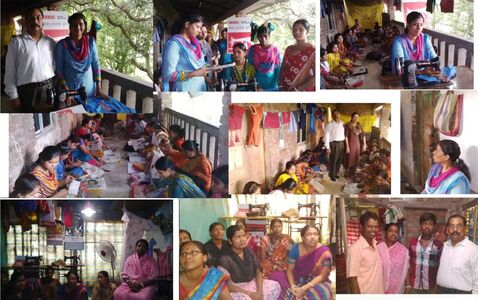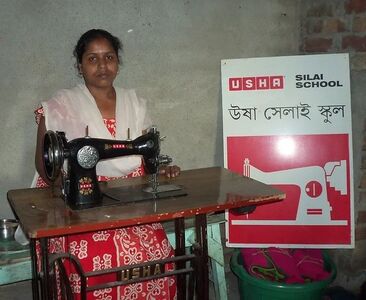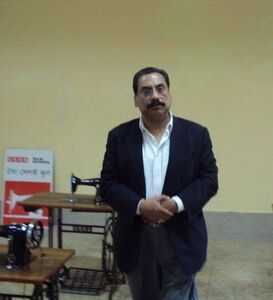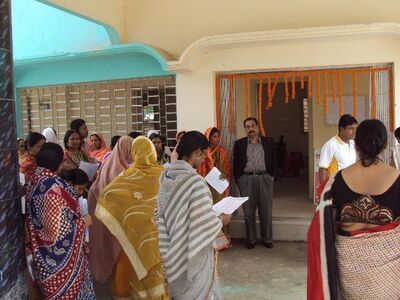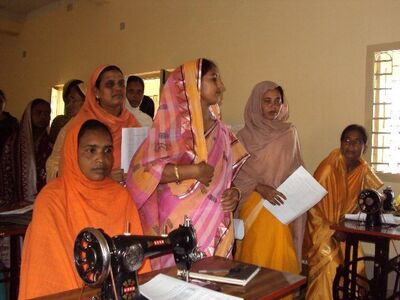While India’s development journey from a nascent polity to a thriving democracy in the last six decades is an enigma to some, complex poverty issues affecting women, children and other marginal groups are causes of concern to many. 72% of India lives in villages and in extreme conditions of poverty. The worst affected by these conditions are the women in villages, who because of not having any control over land or other means of productions and due to the inherent patriarchal nature of society, face the worst forms of discrimination.
The Usha Silai School aims to work with the women in the villages and believes that helping women develop their inherent latent potentialities would bring about a holistic development for society at large. In the last twelve years Usha International through its Silai School Program has reached out to remote villages across the country. This is a community-based initiative to empower village women to become entrepreneurs and teach sewing and stitching within the precincts of their homes. This programme is necessarily “inclusive” in character, thereby implying that the programme is implemented for the economically poor irrespective of caste, class, religion or creed.
Usha International has opened more than 1100 Usha Silai Schools in the Districts of West Bengal, as a Centre of Excellence, in collaboration with the Government of West Bengal. The first of the school was opened in 2012 in the subdivision of Murshidabad in Domkal which consists of Dhulian municipality and four community development blocks: Domkol, Raninagar–I, Raninagar–II and Jalangi.
The concept of the Usha Centre of Excellence for self-employment is based on a Public Private Partnership (PPP) model involving the Government, Civil Society and Usha International Ltd.
The centres would cater to two requirements; Sewing training and a Production Unit. Usha provides Sewing machines for setting up a centralized training cum production centre. This should include simple black foot machines. Usha will provide a Resource person for training who in turn would train teachers who can teach on a regular basis at the Centre .They will also provide the syllabus.
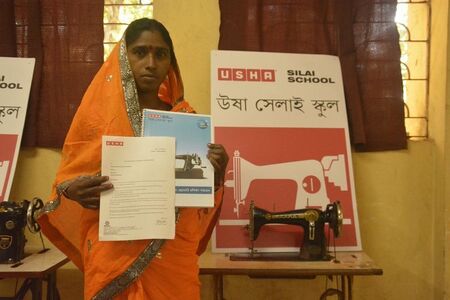
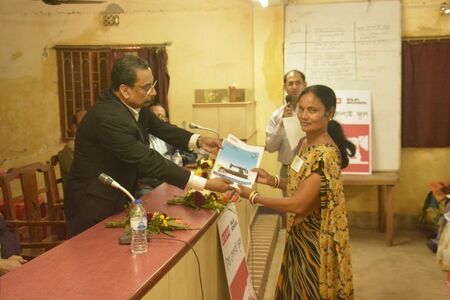
The role of the Government, through the District Rural Development Council will be to provide readymade infrastructure, buildings, for setting up the ‘Silai School’ and hostel/ residential facilities for conducting training. Use the centralized training centre for training more women/girls whom they have already supported with sewing machines. Use the centralized training centre also as a production centre for providing self-employment opportunities for women with backward & forward linkages. Identification of women for training and providing them support for setting up individual 'Silai School'. Provide all other support that may be required for sustainability of the centre including linkages for marketing of finished products.
